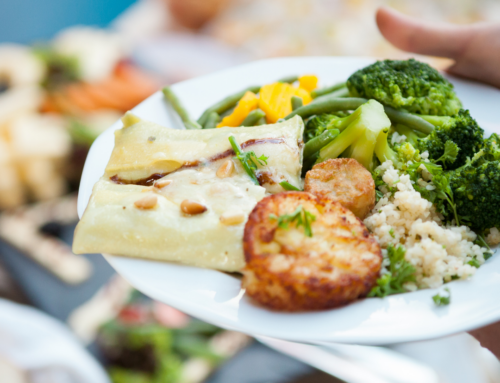Once, on my birthday, a friend gave me a pot full of dirt and spiky green blobs. “It’s a cactus,” she said, when I asked about light exposure, fertilizing schedules, soil mixes. “Water it sometimes.”
I did water it sometimes, and it grew. As I write this, its spindly arms wave over my bookcase like an underfed orchestra conductor. My cactus and I have an agreement: I water it when I remember to and in return, it lives. My plant mothering is adequate, but not extraordinary—in our five years of peaceful coexistence, my cactus has never once bloomed.
Google images show me the possibilities: firework blooms of pink, white, and red. Google also explains what it would take to get my cactus to flower—a fussy calibration of water, temperature, and light that makes my eyes glaze over. It’s too much work. My cactus will soldier on, un-bloomed, and I will buy (and kill) another orchid.
The lesson: in surviving under my care, my cactus exhibits resilience—the ability to recover from stress—but it needs tenderness, not just tough love, to reach its full passionate potential.
Researcher and author Angela Duckworth identifies grit (passion + perseverance over time) as a key indicator of an individual’s chances of success, and maintains that kids and adults alike can cultivate “grittiness” by following a series of steps:
- Identify your passion, the labor that brings you joy
- Break it into into smaller pieces to practice
- Understand the ways your passion connects to your community
- Maintain your hope that your hard work will pay off
In a 2016 New Yorker article, writer David Denby critiqued Duckworth, pointing out that her research and recommendations don’t account for the ways poverty, violence, and emotional abuse or neglect can stunt a child’s ability to develop grit on a biological level. Denby worried that if we see grit as a self-willed character trait, kids without emotional or financial support might be “condemned for a lack of grit that they cannot be responsible for.”
In a 2016 Atlantic article, the aptly-named Paul Tough wrote that neuroscientists had identified childhood stress as the biggest barrier to developing key “noncognitive capacities” like grit. Toxic stress can make it hard for kids to regulate their emotions in response to challenges or letdowns, and make them fear connections with teachers and peers. It can also disrupt their brain’s development of “executive functions”—higher-order mental abilities like working memory, attention, and flexibility.
But parents can have a huge positive influence on their kids’ grittiness:
“When parents behave harshly or unpredictably—especially at moments when their children are upset—the children are less likely over time to develop the ability to manage strong emotions and respond effectively to stressful situations. By contrast, when a child’s parents respond to her jangled emotions in a sensitive and measured way, she is more likely to learn that she herself has the capacity to cope with her feelings, even intense and unpleasant ones.”
In other words, toughness does not necessarily beget toughness—kids need to feel safe to get gritty. It may be that at home, grit isn’t taught so much as cultivated. A child’s gritty neural pathways will blossom in response to safe, supportive, and low-stress environments.
– Cara
Founder & CEO Yellow Parachute Learning Partners








